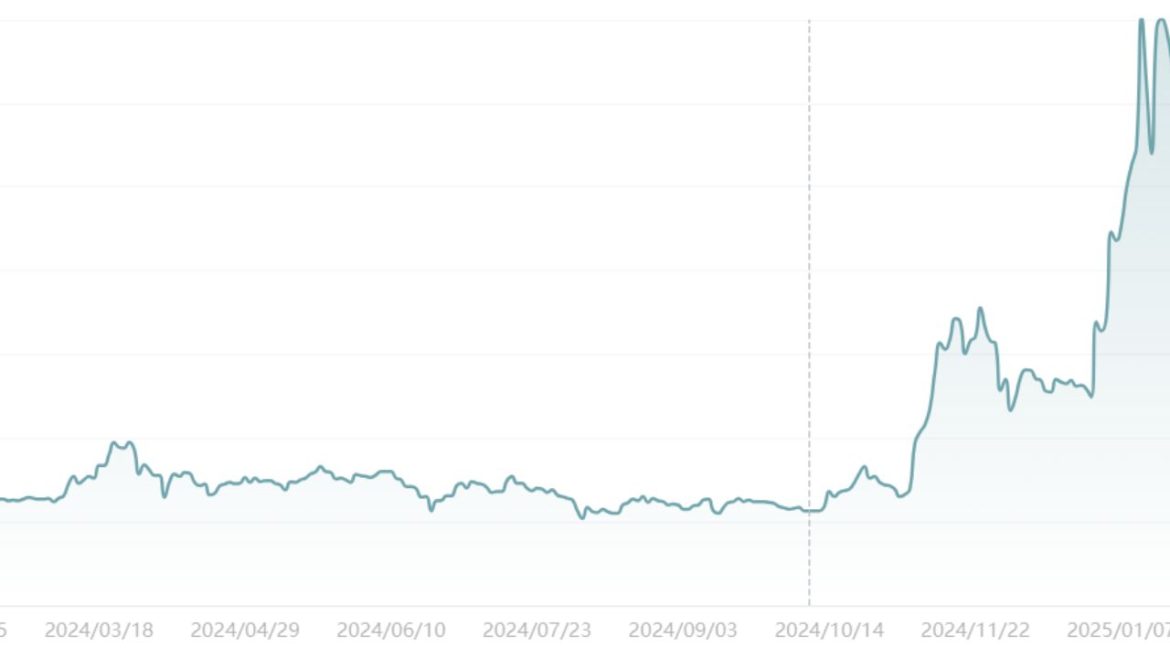Whether Fannie Mae (FNMA) stock functions better as a long-term investment or short-term trading opportunity continues to engage investors and market analysts. FNMA https://www.biyapay.com/stock/FNMAoperates operates as a government-sponsored enterprise (GSE) while its market performance creates distinctive investment prospects and difficulties. Investors need to evaluate the stock’s market price together with its growth prospects and risk factors to determine whether they should maintain ownership or sell within a short period.
The Case for FNMA as a Long-Term Investment
The Federal National Mortgage Association operates under the Fannie Mae name to maintain stability in the U.S. housing market through its mortgage liquidity services. The company acquires mortgages before creating securities that serve as mortgage-backed assets. The economic stabilizing properties of FNMA become especially important during periods of market instability because they support both residential real estate and the national financial system.
Multiple aspects make FNMA an appealing investment choice for investors planning to hold it for the long term. The government backing of this organisation provides security benefits that private companies typically do not have. The company’s essential position in the housing market, combined with its solid business model, indicates that Fannie Mae will maintain its position as a vital player throughout the next few years despite past stock price fluctuations. The housing market recovery or growth will drive sustained demand for FNMA services, leading to stable stock value growth.
The Argument for FNMA as a Short-Term Trade
FNMA stock presents several risks to investors. Short-term investors who want to benefit from price movements may find opportunities through FNMA stock. During the previous year, FNMA stock prices showed substantial market fluctuations between $1.02 and $8. Short-term traders can take advantage of price swings that occur because of this market volatility.
The macroeconomic environment serves as a primary determinant for short-term price changes in FNMA stock. The housing market giant FNMA experiences performance changes based on interest rates, together with housing supply and demand, and government mortgage and housing policies. The stock price of FNMA experiences quick changes when major factors in its market environment undergo substantial modifications. Unforeseen policy changes or sudden housing market movements result in short-term stock value fluctuations that traders can capitalise on through such price movements.
The current P/E ratio of 592.93% for FNMA stock suggests that some investors consider it to be overvalued. The high ratio presents both potential growth opportunities and potential risks to investors. Short-term traders tend to dispose of their FNMA shares when they think the stock price exceeds its actual value, thus triggering substantial short-term market fluctuations. The high volatility of FNMA attracts investors who want to generate short-term profits through market sentiment.
A Balancing Act Between Long-Term Growth and Short-Term Volatility
The stock of Fannie Mae provides investors with distinct possibilities based on their investment approach. The essential role of FNMA in the housing market, together with its government backing, makes it an appealing investment for investors who take a long-term view. During times of economic instability, the stock serves as a reliable investment source. Short-term traders benefit from FNMA’s substantial price movements because they create chances to generate rapid profits. FNMA stock functions as a stable long-term investment for growth and also provides short-term trading potential for those who want to benefit from market price fluctuations. The correct investment decision requires knowledge about both economic trends and how FNMA reacts to them.
Market Conditions and External Factors
The stock value of FNMA tends to rise when market conditions remain strong because low-interest rates and high housing demand create favourable conditions for investor confidence. The stock price of FNMA is significantly influenced by external events, including modifications in government regulations and policy changes. Significant U.S. government changes affecting GSE operations or housing market policies would lead to immediate value fluctuations in FNMA stock. Short-term traders who monitor external events closely can better predict price movements in the market. Additionally, investors can now take advantage of opportunities like investing in U.S. or Hong Kong stocks without needing an offshore account, making global investment access easier and more direct.
Conclusion
Investors maintain solid reasons to justify the current stock price despite its initial high appearance. Fannie Mae receives strong backing from the U.S. government and maintains a crucial position in the housing market that boosts investor confidence. Market analysts believe Fannie Mae will expand its operations through two main factors: improved housing market conditions and favorable government policy changes. The P/E ratio should not be viewed negatively because investors need to consider Fannie Mae’s stable market position and government backing, together with its potential growth prospects. Investors who consider these factors will make more informed decisions regarding FNMA stock as an investment.
